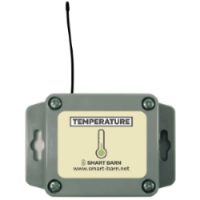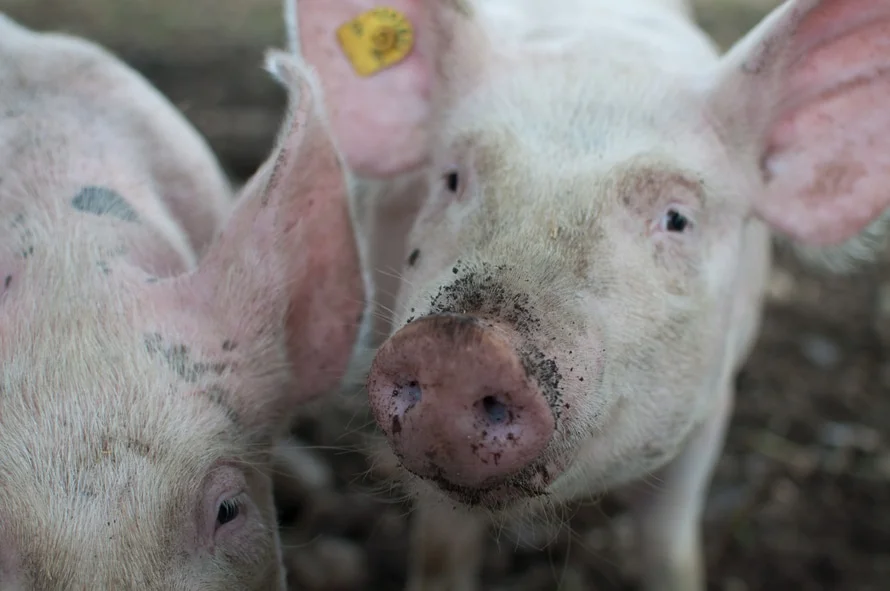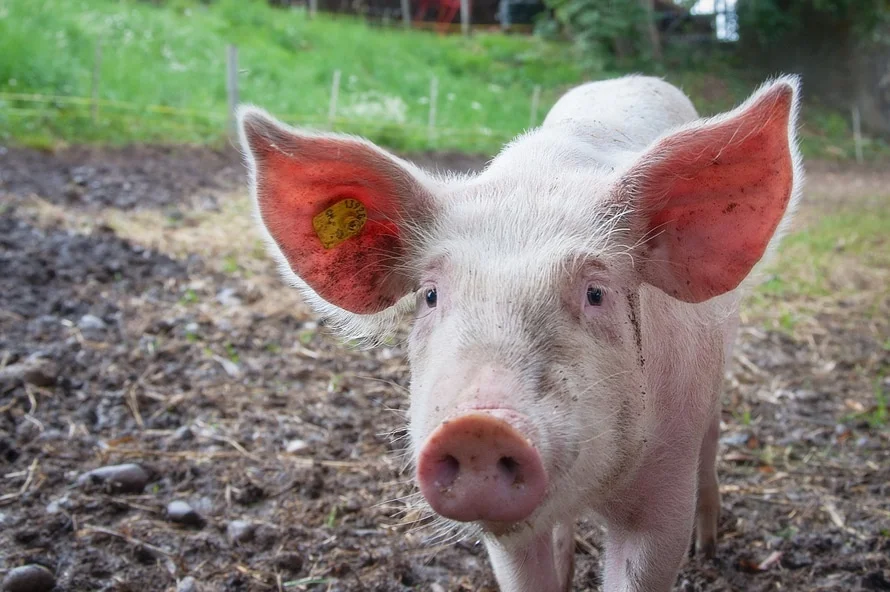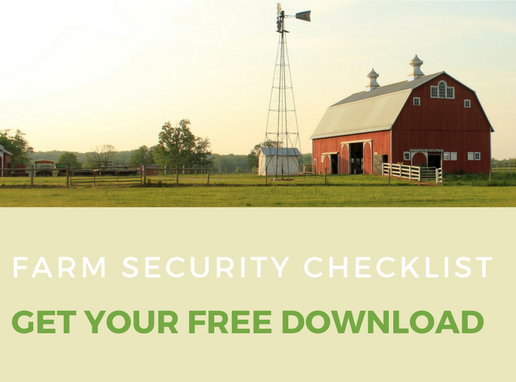It's important to have a livestock farm alarm to detect power outages and high temperatures on a poultry farm, because fried chicken is only good on the dinner table, and roast turkey is great, but only if it's roasting in your oven. Learn how your broilers can thrive, your layers max out their production, and your turkeys to make it to thanksgiving, with these key alarm system considerations.
The Complete Guide to Cellular Monitoring on your Farm After The 3G Shutdown
What does 3G have to do with your livestock farm alarm?
What does 3G have to do with your livestock farm alarm?
Verizon announced last year that they would be sun setting their 3G service by the end of 2020. Matter of fact, all four of the major carriers (Verizon, AT&T, Sprint, and T-Mobile) will be abandoning 3G within the next year or two in favor of the faster, more streamlined 4G LTE.
Chances are you wouldn’t be reading this right now if you didn’t have a need for remote monitoring. But if you’ve got a barn full of hogs, turkeys, chickens, cows or any other livestock, you know how important it is to monitor your farm 24/7. Fresh air, sufficient feed and water, comfortable temperatures, and physical security all play crucial roles in the success of your farm. So smart farmers keep tabs on these factors at all times.
There are a number of ways you could monitor your farm from a distance…
An old fashioned telephone line with an alarm dialer (good luck trying to deal with all the wires if you even manage to gain access to a telephone line in this day and age.)
An Internet-based monitoring system that functions through Wi-Fi (if you’re somehow able to get reliably fast Internet in your area, chances are slim of getting Wi-Fi out in your barn)
A wireless system like Smart Barn that monitors, tracks and notifies in real-time with an always-on cellular connection. Since day one, we’ve been using Verizon’s 3G network. That’s why 3G matters for your farm.
3G, 4G, 5G - what’s the difference?
In cellular network-ese, “G” stands for “generation”. Technology moves crazy fast - in the space of less than forty years, we’ve seen five generations of cellular service.
3G
Came about in the early 2000s. While 2G only let you call and text, with 3G you can also access the Internet from your mobile device. 3G allows for nearly as many capabilities on mobile devices as are available on a desktop computer. When 3G first became available, lots of companies like ours started using it to do things that weren’t possible before… Like monitoring your farm 24/7 no matter where you are.
4G LTE
Gained steam in the 2010s, and is what most if not all carriers support today. 4G is supposed to be 500 times faster than 3G, but in reality it depends on a number of factors. Hence the three little letters “LTE”, which stand for “Long Term Evolution”. This just means that 4G LTE has the capability to constantly evolve and be improved. 3G isn’t as “stretchy” as 4G LTE, which is why Verizon is shutting it down. The good news about 4G LTE is that it will be around for quite a while. Most providers (including our partner Verizon) anticipate using and improving 4G LTE for another ten years at least.
5G
By far the fastest and most powerful generation to date. But right now it’s still in its infancy. Even though a lot of wireless carriers do currently offer it, it isn’t as common and easily accessible as 4G LTE yet. The range of 5G is shorter and 5G towers are currently fewer and farther between than 4G LTE towers.
In our conversations with farmers, one of the biggest concerns is whether or not 5G will be replacing 4G anytime soon. After all, since the major wireless carriers are all dropping 3G now in favor of 4G LTE, won’t they just do the same thing with 4G in a couple of years?
The short answer is no. The slightly longer answer is that 5G is designed in such a way that it will only be effective in bigger cities for the foreseeable future. America isn’t likely to see 5G becoming the norm in this decade, so people using 4G LTE have nothing to worry about.
Smart Barn Livestock Farm Alarm has you covered
The 3G shutdown didn’t catch us by surprise here at Smart Barn. As soon as we saw the potential that 4G LTE had to improve the lives of farmers, we got to work on making a 4G gateway that will work significantly faster than our old 3G gateway.
Here’s what that means. Every one of the sensors you install (whether temperature, humidity, bin level, water pressure, door status, you name it) communicate directly to the gateway, which then stores that information in the cloud, where you can access it from your device any time from anywhere.
If you’re already a Smart Barn user: all you need to do is purchase our 4G gateway, unplug your 3G gateway, plug in your new one, and your sensors will all automatically make the transition.
If you’re not experiencing peace of mind with Smart Barn yet, now is your chance to take advantage of 24/7 monitoring of your farm! You don’t have to keep worrying, guessing, or wasting time and money from lack of awareness about your livestock’s wellbeing. Smart Barn gives you peace of mind around the clock.
Contact us today to get set up!
The Importance of Livestock Farm Alarms and Monitoring for Your Poultry House
It's important to have a livestock farm alarm to detect power outages and high temperatures on a poultry farm, because fried chicken is only good on the dinner table, and roast turkey is great, but only if it's roasting in your oven. Learn how your broilers can thrive, your layers max out their production, and your turkeys to make it to thanksgiving, with these key alarm system considerations.
What are your options for a farm alarm or barn alarm system?
An alarm system for your farm is essential for keeping livestock safe and making sure your farm secure.
There are lots of options out there, and obviously I’m partial to Smart Barn, but we want you to be educated about your choices. Here’s, a quick review of the basic kinds of systems available to you.
The completely wired alarm dialer that uses a phone line:
The old standby is the alarm phone dialer, the Sensaphone 400 is a very common type that a lot of folks use in farming. There’s also the AgriAlert 800ez which is also pretty basic, you set them up using a keypad to program in the phone numbers it will dial. Both are reasonably reliable and cheap as far as farm alarm systems go. The Sensaphone is not completely sealed up in an enclosure, so they can be susceptible to moisture damage or corrosion. The FreezeAlarm FA700E dialer is another option, as well as the Farm Alarm, though I haven’t used those like I’ve used the Sensaphone and AgriAlert.
An internet connected farm alarm system:
There are quite a few more options for you on the web connected side, though your mileage may vary. Sensaphone also has options in this space, with the Web 600. There are also numerous systems from SimpliSafe, Iris, and SmartThings, and Google Nest. Here’s where Smart Barn really shines, if you’re planning on a web-connected system Smart Barn gives you the most bang for your buck by a long shot.
Cellular-connected farm alarm system:
Smart Barn is definitely the best option here too, but I’ll admit there are also alternatives. Sensaphone has the Cell 1400 which is a cell connected dialer. You’ve also got the Digi SmartSense, which used to be several brands like Temp@lert, but is now consolidated into one brand now.
Wired versus wireless:
Many of the farm alarm systems are still hard-wired to their sensors. This means you have to run wires to every point you want to monitor, and usually introduces a lot of maintenance and cost. If you've got more than one building to monitor, then the amount of cable and conduit you'll have to run becomes pricey very quickly. Smart Barn eliminates the wires and is much easier to setup because we use long-range wireless sensors powered by AA batteries that last for years without replacement.
Those are just a few of your options for a farm alarm system, we’ll add more to this list so you’ve got a nice resource and comparison point. And of course, if you want to talk to a friendly person who can help you navigate your technology options, please, give us a call and we’ll help you sort through the options. You can call or text us at 937-697-1890, or email us at contact@smartbarn.io
Why You Need an Alarm for Your Farm
Secure your farm with an alarm system so you won't have to worry
A power outage could cost you $30,000. Smart Barn wireless temperature sensors make sure that your poultry house or hog barn is safe, comfortable and secure. Power outages can cost poultry and hog farmers up to $30,000, and Smart Barn will alert you if your power is out, your generator is running, and the temperature is safe.
A broken fan could cost you $10,000. Ventilation failures on a hog, poultry or dairy farm cost thousands of dollars when animals die of heat stress. Smart Barn tracks the temperature, and and sends you an alarm if there's a problem. Plus, it's easy to check in on your barn any time you'd like using our easy to use smartphone app.
Generators fail. Generators protect your poultry house or your hog barn from power outages, but Smart Barn generator sensors catch dozens of cases of tests not being run, and generators not operating correctly before there's a problem. You can track your generator status and receive alerts if it fails to operate; Smart Barn's permanent data record logs the equipment status, ensures that your backup systems are tested regularly, and operating correctly. Don't find out your generator is broken when the power goes out.
You can secure your farm. Smart Barn is an all-in-one system, it's not just a barn alarm. Our wireless driveway alarms can alert you if someone is trespassing on your property while you're away. You can protect your farm from the weather and from outside intruders.
How to setup WiFi on the farm (PART 1)
Everyone wants WiFi on the farm. But it's not the easiest thing to set up, but we're gonna help you with that! Stay tuned over the next few weeks and we'll walk you through how to set it up step-by-step.
Need humidity and temperature sensing for your farm?
Smart Barn has got you covered! Watch the video to learn more about our temperature and humidity sensor.
Meet Andrew Klein
Water Needs in the Winter
An unfortunately common misconception is that livestock farmers don’t need to provide their animals with as much water in the winter as they do the rest of the year. While it is true that heat stress related dehydration isn't an issue in the winter, your animals still expend significant energy trying to keep warm, eating more as a result.
Do I Need to Monitor My Greenhouse?
Smart Barn’s one-of-a-kind monitoring system utilizes our partnership with Verizon Wireless, effectively eliminating the need for a connection to the internet. Smart Barn’s sensors (temperature, humidity and more) send data directly to a Verizon, who stores it in the cloud so you can view a report and keep records. Smart Barn will also notify you if the temperature or humidity in your greenhouse exceeds or falls below what you want.
Importance of Monitoring Your Foals and Mares
Whether you choose to let your mare give birth in a birthing stall or in an enclosed pasture, it’s important to keep her and her new foal safe and comfortable. Especially in their first days of life, foals are at risk from predators like dogs and mountain lions. For this reason most horse owners take advantage of the safety of a stable.
Smart Barn Sensors
The Danger of Heat Stress
Some like it hot. The rest of us don’t do so hot in the heat. Whether you farm in humid Florida, dry Nevada or chilly Minnesota, heat stress is a risk for your livestock, your crops, and you.
What is heat stress?
Basically, heat stress is what happens when your body becomes unable to regulate your internal temperature and you start to “overheat”. Almost always, heat stress is the result of outward conditions.
Rural Internet Access Quick Guide
Refer A Friend & Receive a $100 Bonus!
Do you like the peace of mind Smart Barn gives you? Do you love how much time Smart Barn saves you? Do you know someone that could benefit from Smart Barn? If so, we want to reward you for sharing with your friends and family! For the rest of 2016, we're extending a $100 referral bonus to any current Smart Barn customer who refers a friend!
Six Reasons to Monitor Your Pig Farm
Monitoring Temperature Remotely on Your Dairy Farm
Dairy cows are most productive when they're comfortable, and they're most comfortable in an environment between 40 and 65 degrees Farenheit. While their thick skin and natural insulation helps them stay warm in cooler temperatures, it also makes them more prone to heat stress in warm weather.

















